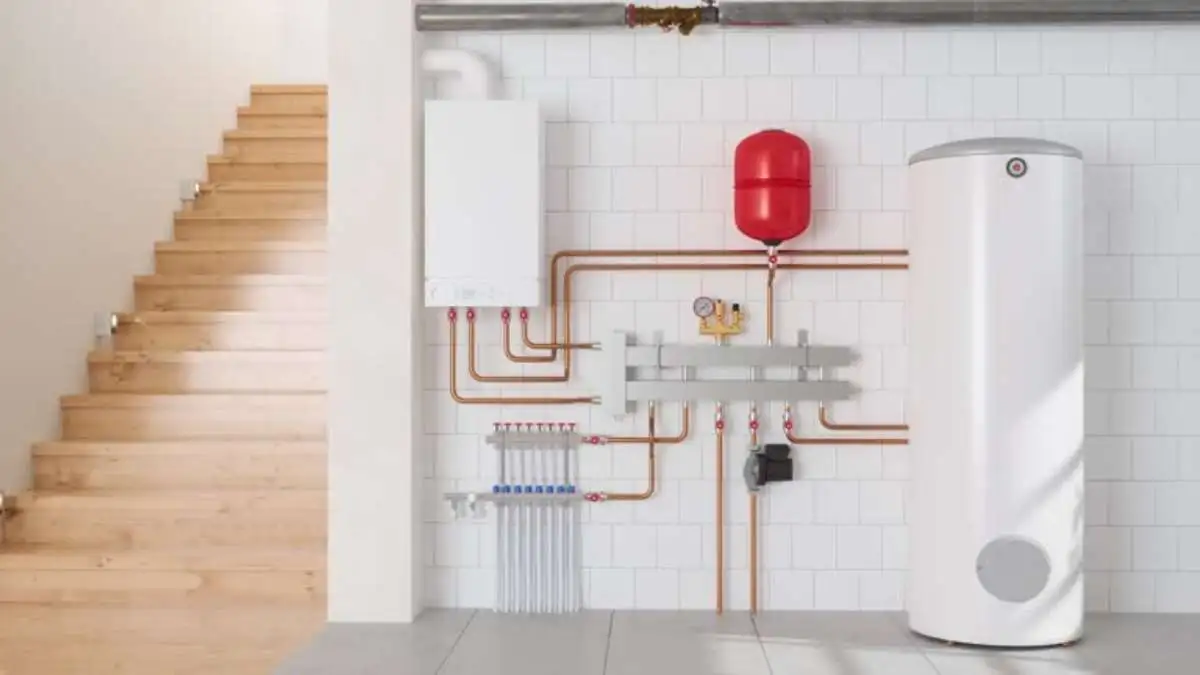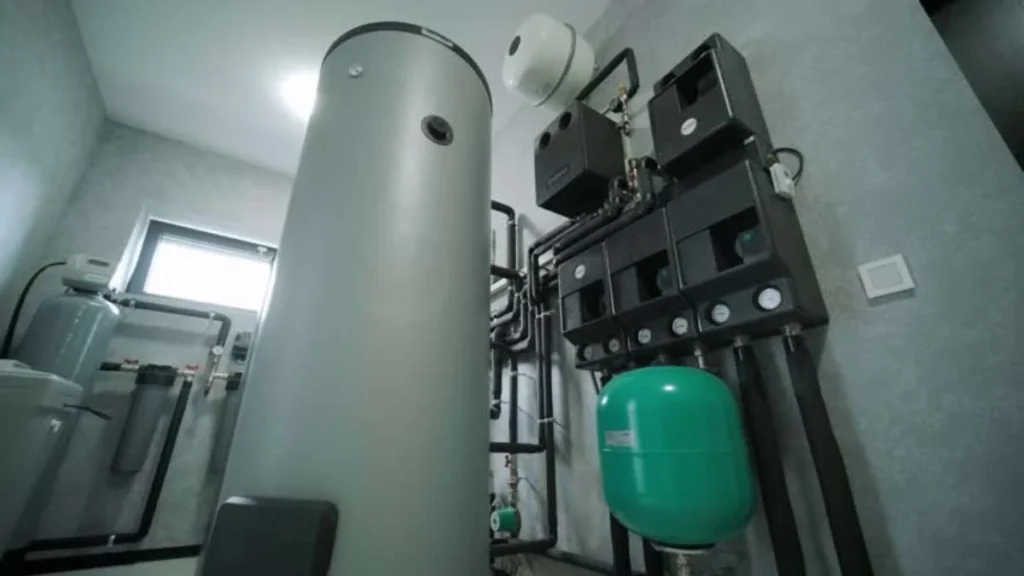HOME IMPROVEMENT
Understanding the Lifespan of Your Home’s Heating System

Introduction: The Journey of Your Heating System
Every heating system has a lifespan, a period during which it operates efficiently and effectively, keeping your home warm and comfortable. However, many homeowners are unaware of how long their heating systems should last or what signs indicate that it’s time for an upgrade. Understanding the typical lifespan of different heating systems and how to extend it through proper care can save you money, enhance comfort, and prevent unexpected breakdowns.
In this article, we’ll explore the lifespan of various heating systems, including boilers, furnaces, and heat pumps. We’ll also provide tips on how to maximize the life of your heating system and know when it’s time to consider a replacement.
Table of Contents
1. The Average Lifespan of Common Heating Systems
Heating systems vary in their longevity based on their type, usage, and maintenance. Knowing the average lifespan of your system can help you plan for eventual replacement and avoid being caught off guard by a sudden failure.
- Boilers: A Long-Lasting Heating OptionBoilers are known for their durability and can last between 15 to 30 years with proper maintenance. These systems heat water or produce steam, which is then circulated through radiators or radiant floor systems to heat your home.
- Maintenance Matters: Regular maintenance, such as annual inspections and timely repairs, can extend the life of a boiler. Key components like the heat exchanger, pressure relief valve, and expansion tank should be checked periodically to ensure they’re functioning properly.
- Furnaces: A Reliable Source of WarmthFurnaces are one of the most common heating systems in homes and typically have a lifespan of 15 to 20 years. They operate by heating air and distributing it throughout the home via ductwork.
- Efficiency Decline: As furnaces age, their efficiency can decline, leading to higher energy bills and uneven heating. Regular filter changes, cleaning, and professional tune-ups can help maintain efficiency and extend the furnace’s life.
- Heat Pumps: Versatile and EfficientHeat pumps, which provide both heating and cooling, generally last around 10 to 15 years. These systems work by transferring heat from the outside air or ground into your home during the winter and reversing the process in the summer.
- Dual Functionality: Because heat pumps are used year-round, they may wear out faster than systems used only for heating or cooling. Regular maintenance, including refrigerant checks and coil cleaning, is essential for maximizing their lifespan.
2. Signs Your Heating System Is Nearing the End
Understanding the warning signs that your system is reaching the end of its lifespan can help you avoid unexpected failures and costly emergency repairs. Here are some common indicators that it might be time to start considering a replacement.
- Frequent RepairsIf your heating system requires frequent repairs, it could be a sign that it’s nearing the end of its useful life. As systems age, their components can wear out, leading to more frequent breakdowns.
- Cost vs. Value: Consider the cost of repairs in relation to the system’s age and efficiency. If repair costs are approaching or exceeding the cost of a new system, it may be more economical to invest in a replacement.
- Increased Energy BillsA sudden or gradual increase in energy bills can indicate that your heating system is losing efficiency. Older systems have to work harder to maintain the desired temperature, consuming more energy in the process.
- Efficiency Decline: If your energy bills are rising despite regular maintenance, it could be a sign that the system is no longer operating efficiently. Upgrading to a newer, more efficient system can reduce energy costs and improve comfort.
- Uneven HeatingIf certain rooms in your home are consistently warmer or cooler than others, it could be a sign that your heating system is struggling to distribute heat evenly. This is a common issue in older systems, particularly if the ductwork is outdated or damaged.
- Duct Issues: In some cases, uneven heating can be caused by issues with the ductwork, such as leaks or blockages. However, if the system itself is failing to produce consistent heat, it may be time for a replacement.
- Unusual NoisesStrange noises, such as banging, rattling, or squealing, coming from your heating system can indicate that it’s nearing the end of its life. These sounds often signal that components are wearing out or that the system is under strain.
- Professional Inspection: If your heating system starts making unusual noises, it’s important to have it inspected by a professional HVAC company like Mesa Plumbing, Heating and Cooling. While some issues can be repaired, others may indicate that the system is reaching the end of its lifespan.

3. Extending the Life of Your Heating System
While all systems have a finite lifespan, proper care and maintenance can help you get the most out of your investment. Here are some strategies to extend the life of your heating system and ensure it operates efficiently.
- Regular MaintenanceRoutine maintenance is the key to a long-lasting system. Schedule annual inspections with a licensed technician to catch potential issues before they become major problems.
- Tune-Ups: Regular tune-ups, including cleaning, lubricating, and adjusting components, can improve efficiency and extend the life of your system. During these appointments, the technician can also identify any worn parts that need to be replaced.
- Change Filters RegularlyOne of the simplest ways to maintain your heating system is by changing the air filters regularly. Dirty filters restrict airflow, forcing the system to work harder and potentially leading to premature wear.
- Monthly Checks: Check your filters every month, especially during the heating season. Replace them as needed to ensure proper airflow and reduce strain on the system.
- Seal DuctworkLeaky ducts can cause your heating system to work harder than necessary, reducing its lifespan. Sealing ductwork can improve efficiency and ensure that heated air reaches its intended destination.
- Energy Savings: By sealing ducts, you can reduce energy waste and improve the overall performance of your heating system. This not only extends the system’s life but also lowers your energy bills.
- Use a Programmable ThermostatA programmable thermostat allows you to control the temperature in your home more efficiently, reducing the strain on your heating system. By setting the thermostat to lower temperatures when you’re away or asleep, you can reduce wear and tear on the system.
- Smart Thermostats: Consider upgrading to a smart thermostat, which offers even more precise control and energy-saving features. These devices can learn your habits and automatically adjust the temperature to optimize comfort and efficiency.
4. When to Consider a Replacement
Even with the best care, every heating system will eventually need to be replaced. Knowing when to make this decision can help you avoid costly repairs and ensure your home remains warm and comfortable.
- System AgeAs your heating system approaches the end of its expected lifespan, it’s wise to start planning for a replacement. Even if the system is still functioning, older units are often less efficient and more prone to breakdowns.
- Proactive Replacement: Replacing your heating system before it fails completely allows you to take your time choosing a new unit and scheduling installation, rather than rushing the process during an emergency.
- Efficiency ConsiderationsIf your heating system is more than 15 years old, it’s likely that newer models on the market are far more energy-efficient. Upgrading to a modern, high-efficiency system can significantly reduce your energy bills and improve home comfort.
- Long-Term Savings: While a new heating system is a significant investment, the energy savings over time can offset the initial cost. Additionally, many modern systems come with advanced features that enhance comfort and convenience.
- Frequent BreakdownsIf your heating system is breaking down frequently, it’s time to consider a replacement. Constant repairs can quickly add up, making it more cost-effective to invest in a new system that offers reliability and efficiency.
- Peace of Mind: A new heating system provides peace of mind, knowing that you won’t have to worry about unexpected breakdowns during the coldest months of the year.
Conclusion: Making Informed Decisions About Your Heating System
Understanding the lifespan of your home’s heating system and recognizing the signs that it’s time for a replacement are essential for maintaining a warm and comfortable home. By staying proactive with maintenance, you can extend the life of your system, improve efficiency, and avoid costly repairs.
Whether you’re currently enjoying the warmth of a well-maintained furnace or considering an upgrade to a high-efficiency boiler, being informed about your heating system’s needs will help you make the best decisions for your home and family. Plan ahead, invest in regular care, and be ready to replace your system when the time comes—your comfort depends on it.
-

 GENERAL6 months ago
GENERAL6 months agoChristofle – For Those Who Dream of Family Heirloom Silver
-

 SPORTS8 months ago
SPORTS8 months agoDiscover the World of Football with Streameast: Watch Your Favorite Leagues and Tournaments
-

 GENERAL5 months ago
GENERAL5 months agoUncovering the World of кинокрадко: The Dark Side of Film Piracy
-

 GENERAL2 months ago
GENERAL2 months agoATFBooru: Anime, Gaming, and Subculture Imageboard


























